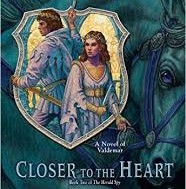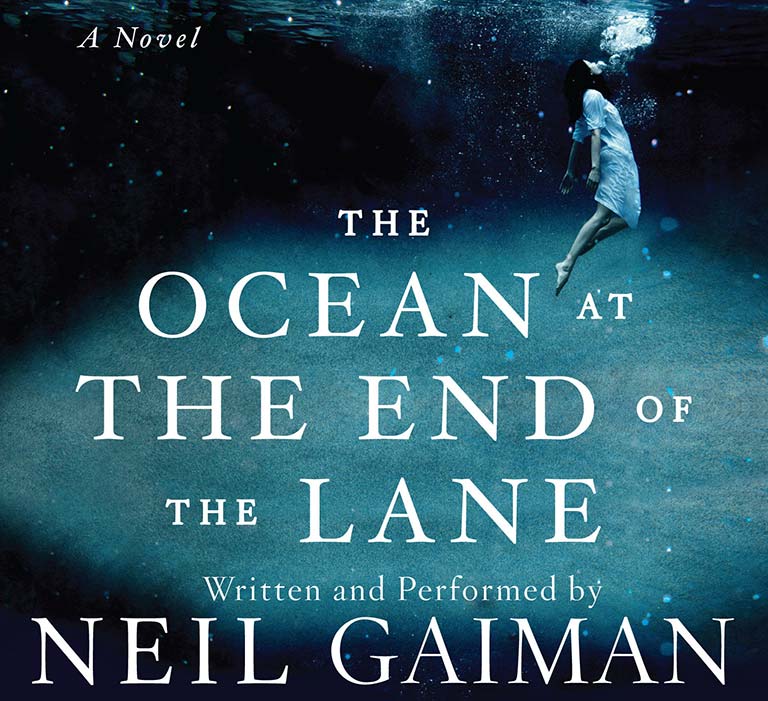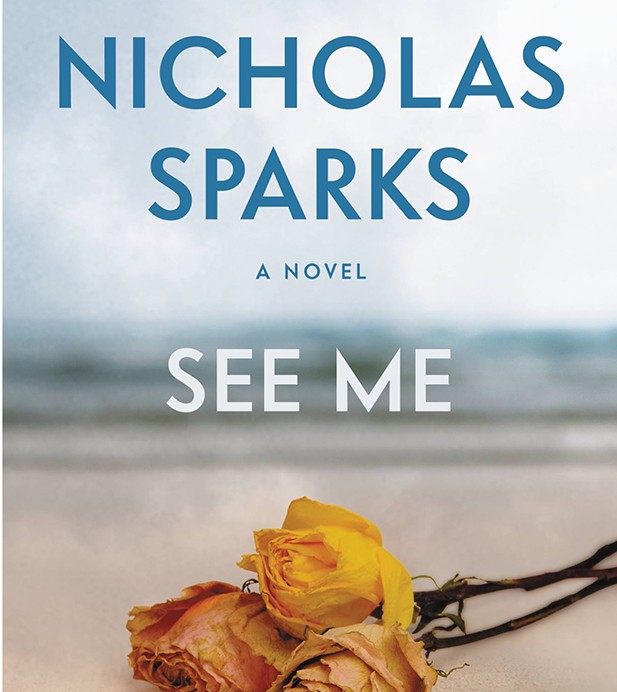First Pages of Best-Selling Novels: The Adventuress
Today, for our first-page analysis, we’re going to look at The Adventuress by Tasha Alexander. This novel is the tenth installment in a historical mystery series. Reminiscent of Raybourn’s Lady Julia series, Alexander’s series introduces a widowed, precocious Victorian lady-sleuth who finds love and romance and displays her sharp sleuthing skills with each novel.
Emily and husband, Colin, have come to the French Riviera for what should be a joyous occasion—the engagement party of her lifelong friend Jeremy, Duke of Bainbridge, and Amity Wells, an American heiress. But the merrymaking is cut short with the shocking death of one of the party in an apparent suicide. Not convinced by the coroner’s verdict, Emily must employ all of her investigative skills to discover the truth and avert another tragedy.
Opening Pages of Series
While it can be presumed that most readers of a series have read some or all of the previous novels and know the characters, writers should keep in mind that some readers won’t have. Which means those opening pages should be easy for anyone to understand and follow (I’ll soon be doing some posts on writing a series and what’s important to know).
On occasion, I’ve started to read a novel that was part of a series (not the first book) and found it too hard to make sense of. Frustrated, and unwilling to put out the effort to stick with the story (in hopes everything would soon be made clear) or go find the first book and read that before resuming, I give up.
It’s a fine art to learn how to immerse both new and faithful readers of a series in the opening pages of a new installment. These pages shouldn’t be filled with backstory and explanation meant to fill in the blanks for new readers. Yet, they need to bring out enough elements from the previous books about the characters and premise necessary for the present story. But this should be done in a way that won’t annoy fans who already “know all this stuff.”
Alexander does what many good authors do in this instance—just jump into the action and reveal the character and her voice as the story unfolds. No doubt when it’s needed, Emily, our amateur (or maybe now, by this tenth book, isn’t so amateur) sleuth will fill in with bits of detail about past events from prior books.
Some novels have hardly any reference to previous plots, as in the case of Elizabeth George’s terrific mystery novels. Characters will grow and change over the series (as we also see in TV series), but only on rare occasion is a previous incident mentioned or thought of, and only where and when it serves the present plot—which is as it should be.
So let’s take a look at this opening page of The Adventuress, and see how it lines up with my first-page checklist.
1.
“The English duke is dead.”
The words, muffled and heavily accented, hardly reached me through the voluminous duvet that, while I slept, had somehow twisted around me with such violence that it now more closely resembled mummy wrappings than a blanket. Struggling against its bonds, I managed to extricate one hand before realizing my head was under a stack of pillows. I flung them aside and sat up, turning to discover my husband was no longer next to me. The words came again, and this time vanquished in an instant all of the confusion clouding my mind after being awoken from a deep slumber.
“Monsieur, the duke, the English duke, he is dead.”
“Jeremy?” I leapt from the bed, dragging the duvet with me (I had not been quite so successful in the removal of it from my person as I had hoped), and started for the narrow patch of light coming into our room from the door, held open by my husband, his dressing gown pulled around him. A chasm seemed to open inside me, as if my heart were splitting and filling me simultaneously with intolerable cold and heat. Jeremy Sheffield, Duke of Bainbridge, my dearest childhood friend, who had tormented me in my youth not quite so much as I had tormented him, could not be dead. I tried to step forward, but my limbs would obey no commands.
Why This Works
Let’s examine some of these essential first-page elements:
Opening Hook: A strong one. Right away we have the announcement of a death, which is perfectly “in genre” for a mystery. It sets up a situation that calls for action and reaction.
Introduction of main character in first few lines: Yes. Emily, in first person, is right there reacting to the situation. Of course, with first-person narrative, your character is going to be introduce via his/her voice. Emily’s voice comes through distinctive and clear.
Starting the story in the middle of something that’s happened (or happening): Yes, someone has died.
A nod to setting; avoid excessive exposition or narrative: Not enough is given of the setting. We see a bed and we know it’s her room (bedroom). But we have no idea where in the world she is. Aside from the lengthy detail about the bedsheet and duvet, there isn’t anything else described in the room.
A catalyst, inciting incident, or complication introduced for your character: Yes, the announcement and shock of Jeremy’s death. It’s a strong complication because the protagonist knows and cares for the victim.
A hint at character’s immediate intentions: Clearly to find out what happened to Jeremy.
A hint at character’s hidden need, desire, goal, dream, fear: Nothing indicated other than her immediate need—to find out what happened.
Unique voice/writing style: Emily’s character has a specific voice for the novel, and the era and genre come into play here. The writing style is wordy and expressive, which fits the character.
Setting the tone for the book: It seems to, with Emily’s personality and way of thinking that comes across.
A glimpse at character’s personal history, personality—shed light on motivation: We see Emily as one with an educated manner of thought (voice in narrative should, and is here, the character’s voice, regardless of whether in first person or third person) and vocabulary. We don’t get much of her personality on this first page or any of her history, but that isn’t all that important at this point.
Hint of character’s initial plot goal: Yes, she will want to know how Jeremy died.
A course of action/decision implied. Introduction of high stakes/dramatic tension: Yes, for the same reason above. Death (implied murder, of course) comes with tension and high stakes.
Good pacing; jump right into present action. No backstory: Yes.
- One characteristic to reveal that makes your character heroic and vulnerable: Not much there. She’s approachable as a character because she is concerned about what’s happened and she gets tangled in the sheets.
- One element of mystery, something hinted at that raises curiosity: The death.
- One element out of the ordinary, unusual, that makes the book different/stand out: Nothing really.
- Concise, catchy dialogue (if in the first scene) that is not boring or predictable: There are only two lines of dialogue (presumably) spoken by someone in the hall to Emily’s husband (that’s not clear), and they’re repetitive, though I imagine that’s for emphasis.
- A hint at theme: None.
What Could Be Better
Like all good mysteries, Alexander jumps right in with action. Many murder mysteries show a death in the first scene, and Alexander gets right to it. And while it’s “accepted” to have a murder mystery be a whole lot like a thousand others, I personally feel the more original and fresh, the better.
Granted, followers of Alexander’s (or anyone’s) series, will happily jump right in and turn pages, knowing they will be entertained and drawn into the story. Having an affection for the protagonist already (presumed, if they are reading all the novels in a series), they don’t need much to grab their interest.
But I feel much of this first page is wasted on details that aren’t important. The bulk of the first page is about the sheet Emily is wrapped up in and the fact that she was woken from sleep.
Yes, it makes sense that if the book is going to start with Emily learning Jeremy is dead, that is one possible situation. But I find scenes with characters waking up in bed (or eating in a restaurant or drinking coffee) fairly boring and overused.
Surely Alexander could have put Emily in a much more interesting setting. She’s on the French Riviera for this engagement party. Lots of great possible locales. Now, Jeremy may have been murdered in his bed, in a hotel where Emily is also staying. There may be a need to have her close, and all the elements of the murder might require this setting and her being in her bed. But if not, I would so much prefer a different setting.
Is it really important do show her tangling with the sheets? Does it reveal anything key about her character? Not to me. I’d much rather that first page show a bit more of the present situation with Jeremy, show a bit of the setting, and hint at why she is there.
I like the line about Jeremy, to indicate the dynamic of their relationship, how she feels about him. And I find the wordiness appropriate to the genre and her character. Some phrases could be trimmed down, such as “after being awoken from a deep slumber.” We just saw she woke suddenly; we don’t now need to be told.
“A chasm seemed to open inside me” could be changed to “a chasm opened inside me” (I often urge my writing clients to search for weak phrases like “seemed to” and take them out).
I would also take out the repetitive line of dialogue. It’s not clear who is speaking. At first I thought it was her husband. I’d at least show her seeing or presuming who is speaking. That might help indicate if they’re in their own home and a servant is speaking (though the novel’s online description explains they’re on vacation) or in a hotel or guests at someone’s estate.
Also when she says “Jeremy,” I thought she was speaking to her husband, calling him that name. Then once I learned she meant the duke, I wondered if she’d been speaking to herself in surprise or to one of the other two characters. Little things, but easily cleared up to keep readers from tripping up.
Using the words such violence to describe the sheet is a bit over the top but probably fits Emily’s character. I wouldn’t know, as a first-time reader of her novels.
All in all, I’d prefer a more interesting situation to start off this story with the pronouncement of her friend’s death with a bit more setting, better dialogue (maybe some lines between her and her husband, and give his name), and less tangling in the sheets.
Your thoughts? Did this first page spark your interest? (If this isn’t a genre you like, try to imagine you do!) Do you find Emily’s character compelling?
Have these looks at first pages helped you? Made you wonder what could be better in your opening scene to engage your reader, nail your genre, and set up your premise?
Why not invest in a ten-page critique? With dozens of comments and suggestions, this may be just the feedback you need to give you an idea of your writing strengths and weaknesses. It’s only $100 US, which is a great deal for the feedback you get.
You can upload your Word doc and pay HERE for your critique. I usually can fit in a ten-pager within a couple of days. Don’t wonder if you are on track. This is a great first step with your WIP. If you’re hesitant, just read some of the testimonials on the right side bar.
I’m here to help you become the best writer you can be!
 Want to read all the analyses of best-seller first pages on Live Write Thrive?
Want to read all the analyses of best-seller first pages on Live Write Thrive?
Get the compiled collection of posts, along with additional insights and instruction that will help your first pages rock!
First Pages of Best Sellers: What Works, What Doesn’t, and Why is available in Kindle ebook and paperback! Get yours HERE!












Perhaps because I am learning at your knee, my reaction mirrored yours, even before I read your comments. Murder is always a great premise, but I got more tangled in the bed sheets than the protagonist did. I’d sleep this one off.
I was confused from the start. If the character is trapped by her duvet with pillows on her head, who was the muffled, accented voice addressing? Later it’s clear her husband was standing at the door. And yes, for a moment I believe her husband’s name was Jeremy. All that rigmarole about escaping her bed covers is to me a waste. I love to read, I’ll even work at it if the story’s good, but I would put this book back on the shelf.
I, too, was right there with you, especially after learning so much from you about first pages. All that about being stuck in the covers didn’t seem important enough to be in those first critical sentences.
Your remark that “Not enough is given of the setting. We see a bed and we know it’s her room (bedroom). But we have no idea where in the world she is…” brings to mind a question I’ve pondered before.
Does a writer assume the reader has read the back cover blurb, or is it better to start off repeating the setting info contained in the “About this book’? For example, the back cover of this book likely says, “While vacationing on the Riviera, etc.”
Good question. Well, someone might have the book on their Kindle for a few months and start to read. Or the dog’s chewed off the cover. Let’s not assume a reader has to get the setting (or any other details) from any source other than the scenes themselves!
I’m late to the book party here, but I thought the whole waking-up-tangled-in-covers-and-duvet bit was a hint at humor and even the basic vulnerability of the Protagonist, who may turn out to be utterly competent in other ways (such as solving murders) in which case it’s pure set-up. I didn’t mind. But again, another starting of a story with main character waking up in bed. It’s as bad as writing an opening weather scene, which, like purple prose, gives us ‘purple rain’ writing.
Also, it appears your offer, above, to read 10 pages for $55, is no longer available by clicking your link, so it may be time to edit out.
Great series, I am enjoying reading all these First Pages and your evaluations.
Thanks for pointing that out. The post is 6 years old, so I updated the price. Critiques are $10 US a page. And all these posts have been compiled in a book! So check it out!